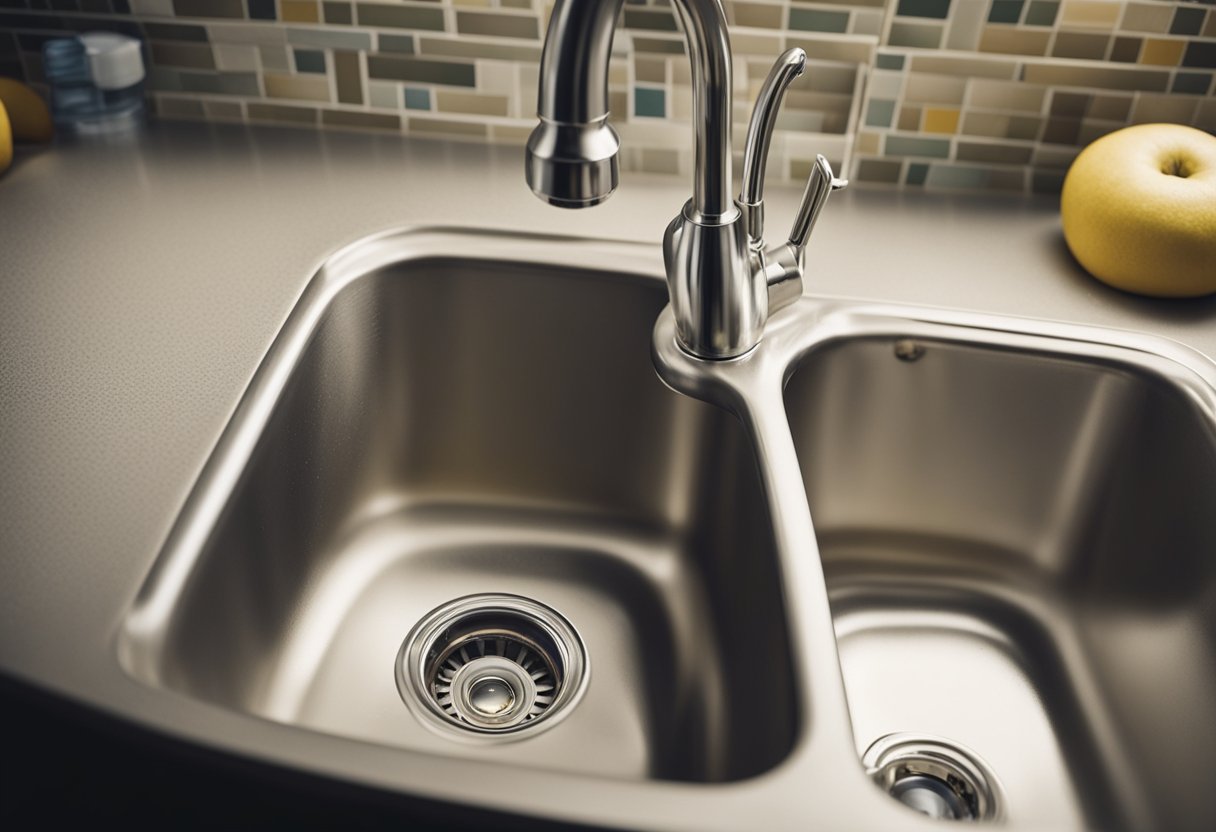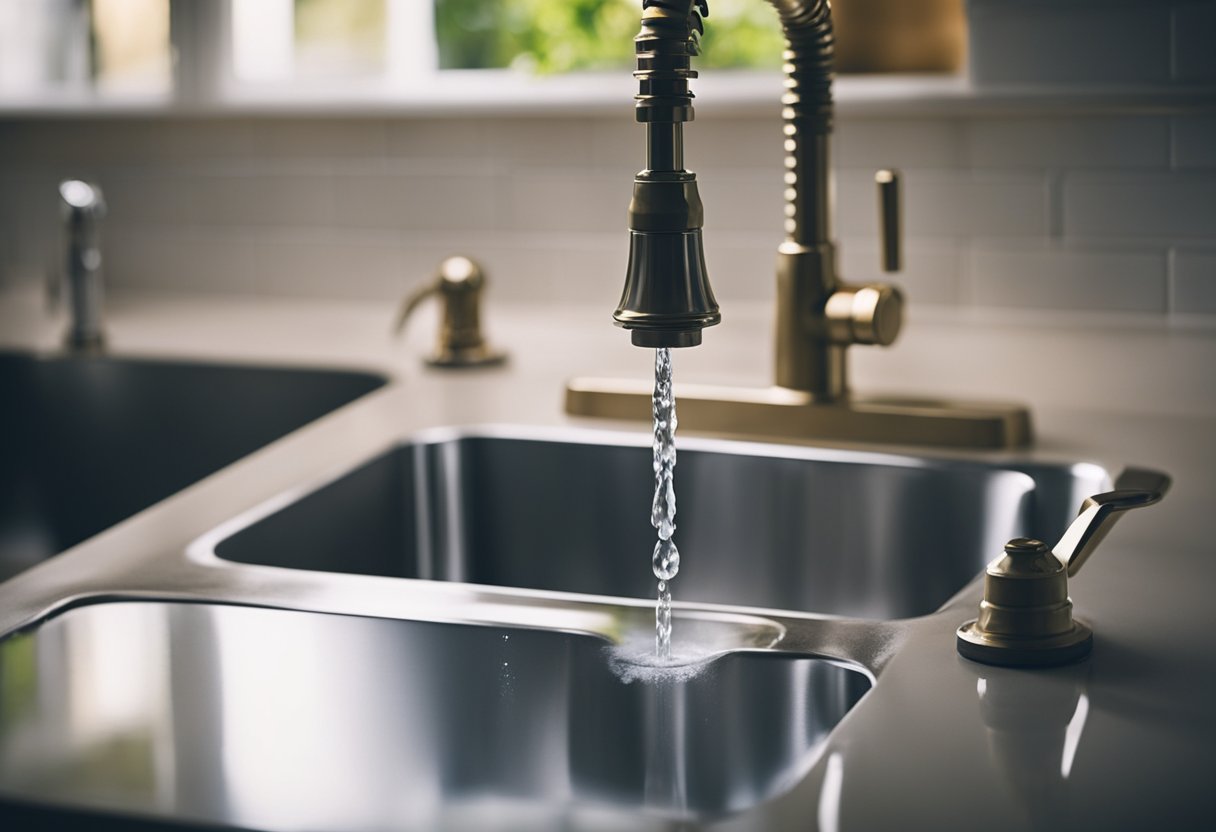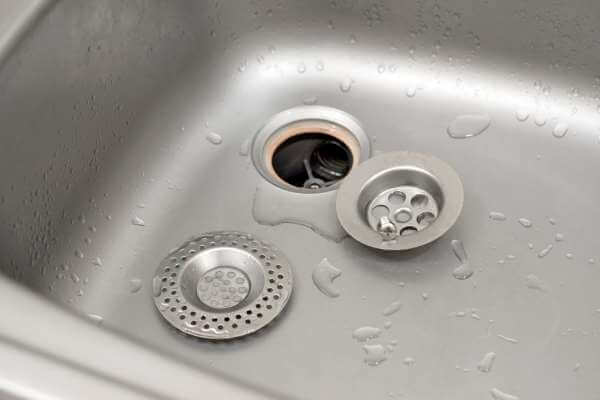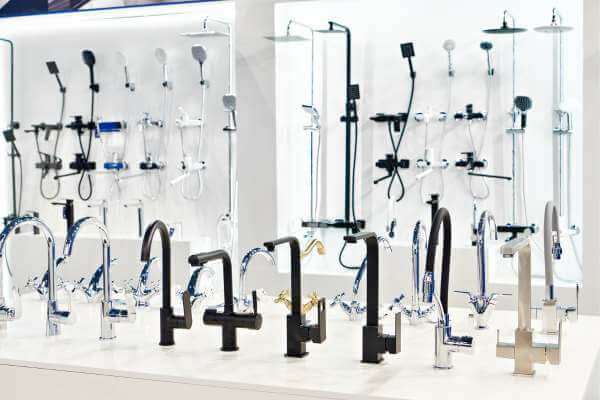When a homeowner enters their kitchen and is greeted by a foul smell emanating from their sink, it can be a frustrating and unpleasant experience. The smell is often likened to that of rotten eggs or sewage, and it can linger throughout the entire kitchen. In most cases, the smell is a result of sewer gases escaping from the drain, and it can be caused by a variety of issues.
One common cause of a sewer smell in a kitchen sink is a clogged or damaged plumbing system. The sink is a workhorse in the kitchen, and it can quickly become clogged with food particles, grease, and other debris, leading to a buildup of bacteria and a foul odor. Additionally, the P-trap, which is designed to prevent sewer gases from entering the home, can become clogged or damaged, allowing gases to escape through the sink drain.
To fix the issue, homeowners can try cleaning out the drain and trap, checking the P-trap for clogs or damage, and fixing the vent if necessary. Regularly cleaning the sink and drain can also help prevent the buildup of bacteria and debris, which can lead to a sewer smell. By taking these steps, homeowners can eliminate the unpleasant odor and enjoy a fresh-smelling kitchen sink.
Common Causes of Sewer Smell
There are several reasons why a kitchen sink may emit a sewer smell. Here are some of the most common causes:
Food Debris and Grease Accumulation
Food debris and grease are the most common causes of sewer smell in a kitchen sink. When food particles and grease accumulate in the drain, they can start to rot and emit a foul odor. This can also attract bacteria and other pests, leading to a more serious problem.
To prevent this, it is important to clean the sink regularly and avoid pouring grease down the drain. Using a drain strainer can also help to catch food particles and prevent them from accumulating in the drain.
Dry or Damaged P-Trap
The P-trap is a U-shaped pipe located beneath the kitchen sink that traps water and prevents sewer gases from entering the home. If the P-trap becomes dry or damaged, it can no longer trap water and allow sewer gases to enter the home, resulting in a foul odor.
To fix this problem, pour water down the drain to refill the P-trap. If the P-trap is damaged, it may need to be replaced.
Clogged or Blocked Plumbing Vent
The plumbing vent is a pipe that allows air to enter the plumbing system and equalize pressure. If the vent becomes clogged or blocked, it can cause water to drain slowly and emit a foul odor.
To fix this problem, the plumbing vent may need to be cleaned or unclogged. It is important to hire a professional plumber to perform this task, as it can be dangerous and requires specialized equipment.
By understanding these common causes of sewer smell in a kitchen sink, homeowners can take the necessary steps to prevent and fix this problem. Regular cleaning and maintenance can go a long way in keeping the kitchen sink smelling fresh and clean.
Health Risks and Structural Damage

Sewer Gases and Health Risk
When your kitchen sink smells like sewer, it could be a sign of a bigger problem. Sewer gases can cause health issues, including headaches, dizziness, and nausea. These gases contain hydrogen sulfide, which can be toxic in high concentrations. Inhaling these gases over a prolonged period can be harmful to your health.
If you notice a sewer smell coming from your kitchen sink, it’s essential to address the issue promptly. Ignoring the problem can lead to health risks for you and your family.
Leaks and Water Damage
A sewer smell in your kitchen sink can also be a sign of leaking pipes. Leaks can lead to water damage and structural issues in your home. Water damage can cause mold growth, which can be harmful to your health.
It’s crucial to have a professional inspect your plumbing system if you suspect a leak. Ignoring a leak can lead to costly repairs and structural damage to your home.
In conclusion, a sewer smell coming from your kitchen sink may seem like a minor issue, but it can have severe consequences. Addressing the issue promptly can prevent health risks and structural damage to your home.
Diagnosing the Source of Sewer Smell

If you’re experiencing a sewer smell in your kitchen sink, it’s important to diagnose the source of the problem before attempting any fixes. There are a few common causes of sewer smell, including leaks, obstructions, and issues with the sewer line.
Checking for Leaks and Obstructions
One possible cause of the sewer smell in the kitchen sink is a leak or obstruction in the pipes. This can lead to a buildup of sewage gases, which can then escape through the sink drain and into your home. To check for leaks or obstructions, you can try the following:
- Check for visible leaks under the sink or in the pipes leading to the sink. If you notice any leaks, it’s important to call a professional plumber to fix the issue.
- Run water down the sink drain and listen for any gurgling sounds. This may indicate an obstruction in the pipes, which can also lead to a sewer smell. If you suspect an obstruction, you can try using a plunger or a drain snake to clear the blockage. However, if you’re unsure how to do this or if the obstruction is particularly stubborn, it’s best to call a plumber.
Identifying Sewer Line Issues
Another possible cause of the sewer smell in the kitchen sink is a problem with the sewer line itself. This can be a more serious issue, as it may require more extensive repairs or even replacement of the sewer line. To identify sewer line issues, you can try the following:
- Check for any visible damage to the sewer line, such as cracks or breaks. If you notice any damage, it’s important to call a professional plumber to assess the situation.
- If you suspect a problem with the sewer line, you can try running water down other drains in your home to see if the problem is isolated to the kitchen sink. If you notice sewer smell in other areas of your home as well, this may indicate a more serious issue with the sewer line.
Overall, if you’re experiencing sewer smell in your kitchen sink, it’s important to diagnose the source of the problem before attempting any fixes. While some issues may be easy to fix on your own, others may require the help of a professional plumber.
Natural and Chemical Solutions

If you are dealing with a sewer smell in your kitchen sink, there are several natural and chemical solutions you can try to eliminate the odor. Here are two of the most effective methods:
Baking Soda and Vinegar Treatment
One of the most popular natural solutions for eliminating sewer smells in the kitchen sink is the baking soda and vinegar treatment. To use this method, simply pour one cup of baking soda down the drain, followed by one cup of distilled white vinegar. Let the mixture sit for about 10 minutes, then flush the drain with hot water.
Baking soda is an effective odor neutralizer and can help break down any organic matter that may be causing the sewer smell. Vinegar is acidic and can help dissolve any buildup in the pipes that may be contributing to the odor.
Hot Water and Dish Soap Method
Another effective method for eliminating sewer smells in the kitchen sink is the hot water and dish soap method. To use this method, simply fill a large pot with water and bring it to a boil. Add a few drops of dish soap to the water, then carefully pour the mixture down the drain.
The hot water can help break down any organic matter that may be causing the sewer smell, while the dish soap can help dissolve any grease or buildup in the pipes. This method is particularly effective if the sewer smell is caused by a buildup of grease or food particles in the pipes.
In conclusion, natural solutions such as baking soda and vinegar, as well as chemical solutions such as dish soap, can be effective in eliminating sewer smells in the kitchen sink. It’s important to identify the root cause of the odor before trying any of these methods to ensure they are effective.
Prevention and Regular Maintenance

Regular maintenance and prevention are key to keeping kitchen sinks smelling fresh and clean. By following a few simple steps, homeowners can avoid the unpleasant odor of sewer gases emanating from their kitchen sink.
Proper Disposal Practices
One of the main culprits of a smelly kitchen sink is a dirty garbage disposal. Rotting food and other debris can accumulate in the disposal, leading to foul odors. To prevent this, homeowners should be mindful of what they put at their disposal. Hard items such as bones or fruit pits should be thrown away in the trash, while soft items like vegetable peels or eggshells can be ground up in the disposal. Homeowners should also run cold water while using the disposal to help flush away any debris.
Routine Cleaning and Inspection
Regular cleaning and inspection of the sink and garbage disposal can also help prevent odors. Homeowners should clean their sink daily with mild detergent and warm water, paying special attention to the sink strainer. The garbage disposal should also be cleaned regularly by grinding up ice cubes and citrus peels to help eliminate any trapped food particles.
In addition to regular cleaning, homeowners should also schedule routine drain cleaning to prevent clogs and backups. A professional plumber can use specialized tools to clean out the drain and remove any buildup that may be causing the odor.
Conclusion of Why Does My Kitchen Sink Smell Like Sewer
In conclusion, a sewer smell coming from your kitchen sink can be caused by a variety of issues, including a dry p-trap, clogged or damaged pipes, or a malfunctioning vent. It is important to address this problem promptly to prevent potential health hazards and to maintain a pleasant living environment. By identifying and addressing the root cause of the odor, you can effectively eliminate the unpleasant smell and ensure the proper functioning of your kitchen plumbing. Regular maintenance and prompt attention to any unusual odors can help keep your kitchen smelling fresh and clean. By following these simple prevention and maintenance steps, homeowners can keep their kitchen sink smelling fresh and clean, and avoid the unpleasant odor of sewer gases.


 Hi, my name is Debra Klein and I love modern kitchen designs! As a product reviewer, it’s my mission to help homeowners choose the right modern kitchen accessories for their homes. I want to give them the best solution possible so they can make the best decision for their needs. Thanks for reading!
Hi, my name is Debra Klein and I love modern kitchen designs! As a product reviewer, it’s my mission to help homeowners choose the right modern kitchen accessories for their homes. I want to give them the best solution possible so they can make the best decision for their needs. Thanks for reading!




